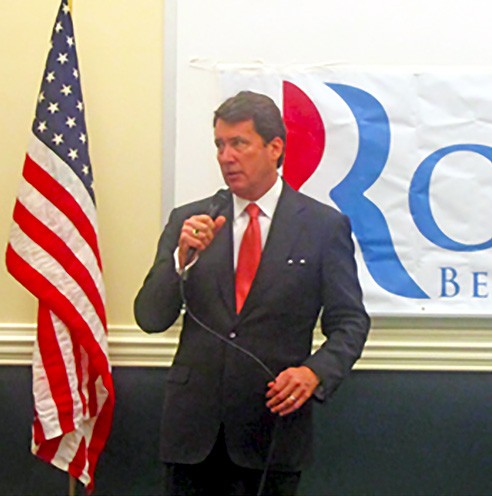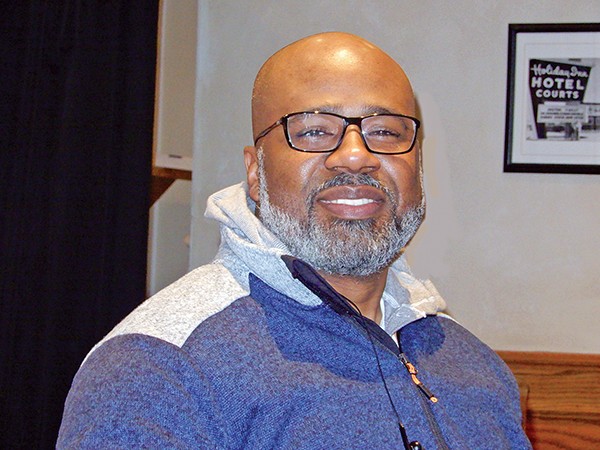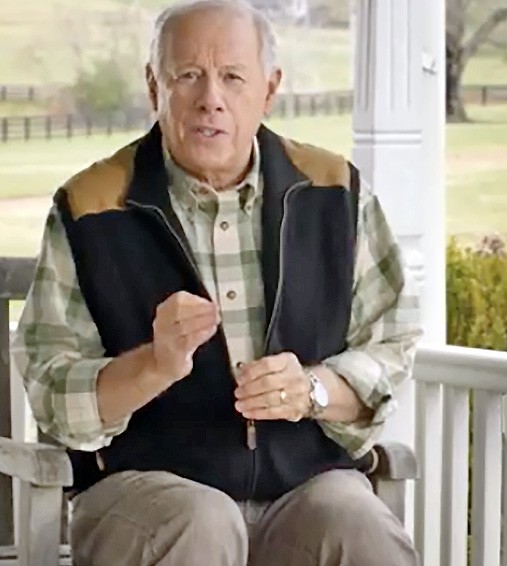Since Phil Bredesen‘s name was first dropped as a possible Democratic candidate for the U.S. Senate seat being vacated by Bob Corker, the former governor has done a neat back-and-forth on the prospect, first expressing no interest, next rising to the bait, and then leaving the idea open as both fellow Democrats and Republicans have engaged in a running guessing game as to his intentions.
That quandary persists right up to the minute, with a decision by Bredesen likely to come between the composition of these lines and their appearance in print. Or not.
The effect has been to paralyze or at least inhibit the momentum that declared Democratic Senate candidate James Mackler might otherwise have achieved. First-time candidate Mackler, a lawyer and Iraq war veteran from Nashville, has had difficulty emerging from the shade of anonymity despite a well-turned-out mailer or two and some impressive appearances before limited audiences — like the meet-and-greet/fund-raiser he held a month ago in the East Memphis home of Bryce Timmons, in which the personable candidate demonstrated in his remarks what could be a fetching mix of progressive political positions and, on the basis of his military service, some old-fashioned patriotism.
That the Bredesen mystery was ripe for solution was the thrust of a lengthy report in the latest edition of the nonpartisan “Smart Politics” newsletter published this week by the University of Minnesota’s Humphrey School of Public Affairs and Center for the Study of Politics and Governance.
Eric Ostenmeier, the resident “Smart Politics” sage, begins his account with a sense that a decision by Bredesen is imminent and casts the issue in a somewhat skeptical light. Says Ostenmeier: “The ‘will he or won’t he’ question may finally be answered this week with regards to a Phil Bredesen 2018 U.S. Senate bid, but, in the meantime, a new ‘Smart Politics’ report examines how unusual it would be for the former Tennessee governor to win the seat.”
Ostenmeier proceeds to review the history of Tennessee ex-governors who sought Senate seats during the last 100 years and finds that only one, Republican Lamar Alexander in 2002, who succeeded, while the handful of Democrats who’ve tried it — the most recent being Frank Clement in 1966 — have come up short.
Another caveat noted by Ostenmeier is the fact that, if Bredesen runs and is elected, he would enter the Senate at the age of 75, making him “the fifth-oldest to win a first term via an election, the second-oldest to enter via election since the passage of the 17th Amendment, and the oldest to enter via direct election for a full term.”
Meanwhile, the aforesaid Alexander, meeting with reporters in Nashville Friday after an appearance before the Greater Tennessee chapter of the Associated Builders and Contractors, had this to say about a potential Bredesen candidacy:
“He would be a formidable candidate. He was a popular governor. I think what he would have to explain to the people is how electing one more to the Democratic number in the Senate would help the people of Tennessee, and my argument would be if you want conservative judges and lower taxes and deregulation, then it’s better to have a Republican majority.”
Alexander’s lines themselves bespeak a certain respect, born of fruitful relations between the two of them for the eight years of their simultaneous service from 2003 to 2009, when a term-limited Bredesen left the governorship. Beyond that, and the Republican senator’s obligatory bromide in favor of the mother ship GOP, Alexander’s meta-message is one of elementary and neutral caution to the two party-mates — former 8th District Congressman Stephen Fincher and 7th District Congressman (her preferred title) Marsha Blackburn — who will slug it out for the Republican Senate nomination.
What Democrats might divine from Alexander’s evaluation is less obvious. The fact is that the political views of Bredesen, a moderate Democrat who governed the state with a tight rein on expenditures, are probably closer in spirit to Alexander’s own than they are to the ultra-conservatism of Fincher and Blackburn.
And, with old Democratic loyalties having long since washed away in most of rural and small-town Tennessee, it remains to be seen whether the current rank and file of youthful, urban-based Democrats will respond more enthusiastically to a Bredesen than to a Mackler. It is certainly true that the former governor would have a commanding lead among old-line party types and traditional donors.
If Ostenmeier proves correct in his projection of a timely decision by Bredesen this week or soon thereafter, we will soon know whether this kind of speculation is academic or on point.
•
Another issue that, at press time, was due for some kind of likely resolution this week is that of the showdown over opioid litigation between Shelby County Mayor Mark Luttrell and the County Commission, a clear majority of whose members have lined up behind the defiant leadership of commission chair Heidi Shafer.
The matter ended up this week in the courtroom of Chancellor Jim Kyle, who was asked to rule on Tuesday on Luttrell’s request for an injunction and restraining order against Shafer and her fellow commissioners.
The latest chapter in what has been an ongoing power struggle between the two branches of county government stems from Shafer’s bombshell announcement last week that she had, in the name of the county, engaged the national law firm of Napoli Shkolnik to seek damages from a wide variety of principals — drug manufacturers, pharmacists, physicians, and distributors (licensed and otherwise) — allegedly responsible and potentially liable for the adverse effects of widespread opioid addiction in Shelby County.
Luttrell, who contended that his administration had already been weighing the options for such legal action, promptly objected that Shafer was attempting a usurpation in the face of language in the county charter giving the office of mayor complete authority over legal contracts and establishing the county attorney, appointed by him, as the sole administrator of legal actions on behalf of Shelby County government.
Another burr under Luttrell’s saddle was the fact that, to serve as co-counsel with Napoli Shkolnik, Shafer had named former Commissioner Julian Bolton, whom the commission had formerly sought to employ as an independent counsel of its own but, thwarted by County Attorney Kathryn Pascover‘s adverse ruling, had been forced to hire on instead as a “policy advisor.” Bolton’s involvement in the proposed opioid action thereby constituted an end run of sorts around Pascover’s ruling and Luttrell’s authority.
Whatever the outcome of the hearing in Chancellor Kyle’s court on Tuesday, the issues implicit in the mayoral-commission confrontation were certain to linger and continue to fester.
At its Monday regular meeting, the commission overwhelmingly adopted a stern resolution presented by Commissioner Terry Roland, the language of which “directs” Luttrell and Pascover to desist from their lawsuit against the chair and commissioners. The resolution further seeks financial compensation for the commissioners’ legal expenses and, as an ultimate challenge, “prohibits the County Attorney or the Administration from entering into any litigation without the prior consent of the Commission by majority of their vote.”
Breathtaking as that resolution was (however questionable in its provenance), it fell short, in terms of its immediate effect, of another, more practical resolution that was held back from being introduced on Monday. This one, also prepared by Roland, called for a vote of no confidence in Pascover (and, by implication at least, of Luttrell) and is likely to be introduced at the commission’s December meeting, if not at a special called meeting beforehand.
Whatever the result of Kyle’s hearing, or of any formal mediation the two warring county branches might engage in by choice or by dictate, this power struggle is not even close to being over. The issue of opioid litigation is more a symbol of pre-existing intractable differences and a pretext for dealing with them than it is an animating reason for those differences.


 JB
JB  Jackson Baker
Jackson Baker 
 JB
JB 
 JB
JB  Jackson Baker
Jackson Baker